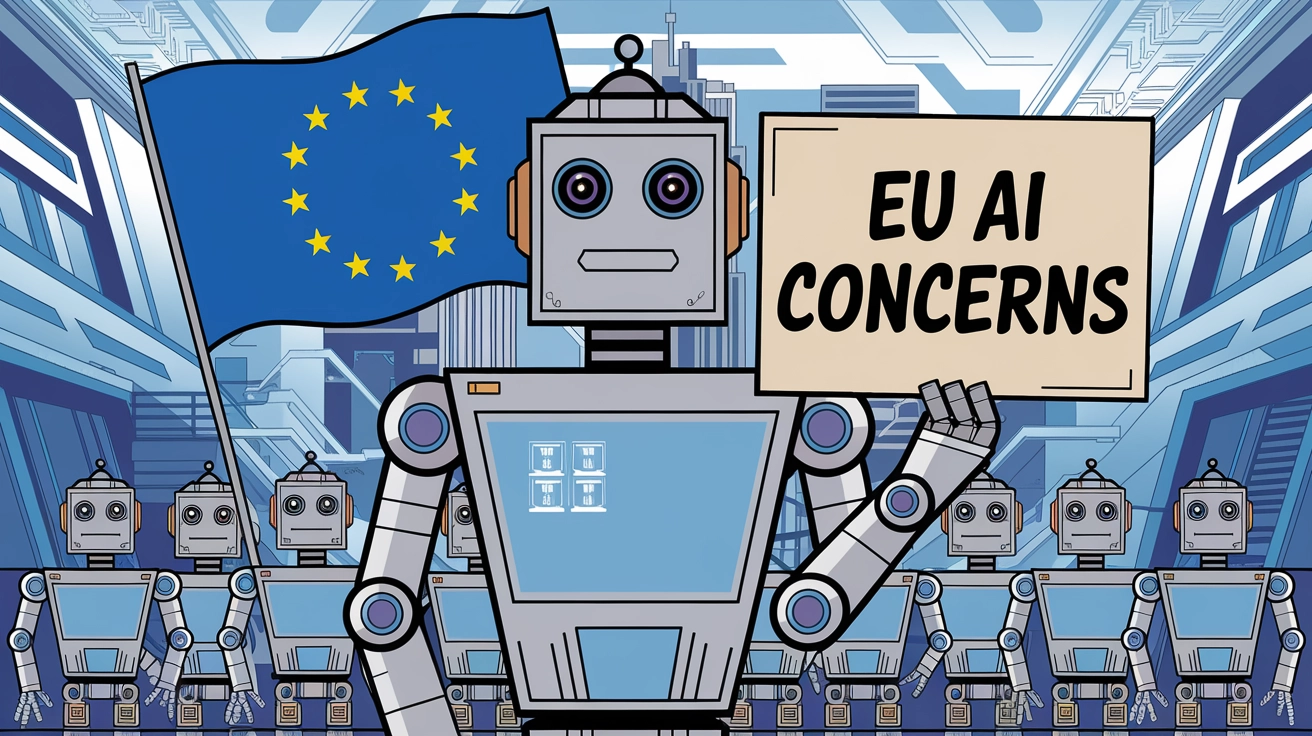Tech Firms Warn About EU AI Regulation

Introduction: The Call for Harmonized AI Regulations
In a pivotal open letter, prominent tech companies and business leaders—including executives from Meta, Stripe’s Patrick Collison, Spotify, SAP, and Ericsson—have raised alarms regarding fragmented AI regulations in Europe. They argue that without cohesive regulatory frameworks, Europe risks lagging behind in the rapidly evolving AI landscape.
The Potential Consequences of Fragmented Regulations
The letter emphasizes the urgency of harmonizing regulations across the European Union (EU), warning that inconsistent frameworks could prevent Europe from harnessing the full benefits of responsibly developed AI technologies. The authors stress that such advancements can significantly contribute to economic growth and propel scientific research, underscoring the need for clarity and consistency in regulatory decisions.
Key Messages from the Tech Industry
According to the letter, “Europe can’t afford to miss out on the widespread benefits from responsibly built open AI technologies.” The signatories called for swift and clear regulatory actions that would facilitate the use of European data in AI training while ensuring the interests of European citizens are prioritized.
Recent Regulatory Developments
Recent inquiries and disputes illustrate the tension surrounding EU data privacy regulations. The Irish Data Protection Commission (DPC) initiated an inquiry last week to assess whether Google complied with EU privacy laws in the development of one of its AI models. Earlier disputes, such as a high-profile case between X, formerly Twitter, and the DPC, have also prompted concerns over the use of personal data for AI training.
Meta’s Adjustments in Response to EU Regulations
In June, Meta announced a pause in its plans to utilize personal data for AI training following the DPC’s concerns. Subsequently, Meta revealed its intention to delay the rollout of multimodal AI models in the EU. The company cited the unpredictable nature of the European regulatory environment as a primary factor influencing this decision.
The Future of AI Regulation in Europe
This back-and-forth highlights the critical need for unified AI regulations within Europe to foster innovation and support the tech industry’s growth. The forthcoming discussions among policymakers and industry leaders will play a vital role in determining how European companies can navigate the complexities of AI development while adhering to privacy and regulatory standards.
Conclusion: Paving the Way for AI Advancement
As the demand for AI technology continues to escalate, the collaboration between tech companies and regulatory bodies will be essential in shaping a favorable landscape for AI innovation in Europe. Achieving regulatory harmonization could ensure that Europe remains at the forefront of technological advancements in artificial intelligence.